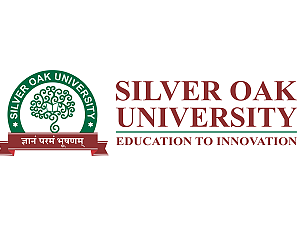Navigating
Political Science: Answering Five Fundamental Questions for BA Students
Political science is a vast and dynamic field,
offering insights into the structures, processes, and impacts of political
systems. For BA students delving into this discipline, understanding its core
concepts and questions is crucial. This blog addresses five fundamental
questions in political science, providing a comprehensive overview that will
enhance your grasp of this intriguing subject.
1. What is
the significance of political theories in understanding political science?
Political theories are the foundation upon
which the study of political science is built. They provide frameworks for
analyzing political phenomena and help us understand the underlying principles
that guide political behavior and institutions.
Key Points:
- Historical Context:
Political theories often arise in response to specific historical
conditions. For example, John Locke's theories on government and
individual rights emerged during the Enlightenment, influencing modern
democratic thought.
- Analytical Tools:
Theories such as realism and liberalism in international relations offer
different lenses through which to view global politics. Realism emphasizes
power and security, while liberalism focuses on cooperation and
international institutions.
- Normative Guidance:
Political theories also provide normative guidance, suggesting how
political systems should be organized and what values they should uphold.
This is evident in theories of justice, such as those proposed by John
Rawls.
Understanding political theories is crucial
for students as they offer the intellectual tools needed to critically assess
political systems and propose improvements.
2. How do
political institutions impact the functioning of a state?
Political institutions, such as legislatures,
executives, and judiciaries, are essential for the functioning of a state. They
establish the rules and norms that govern political life and ensure stability
and order.
Key Points:
- Legislatures:
Responsible for making laws, legislatures reflect the will of the people
and provide a forum for debate and deliberation. Bicameral systems, like
the U.S. Congress, balance representation between different interests.
- Executives: The
executive branch implements laws and policies. It includes the president
or prime minister and the administrative apparatus. Strong executive
leadership can drive policy change, but excessive power can lead to
authoritarianism.
- Judiciaries:
Courts interpret laws and protect constitutional principles. An
independent judiciary is crucial for upholding the rule of law and
safeguarding individual rights.
Political institutions shape the behavior of
political actors and influence the effectiveness and legitimacy of governance.
Their design and operation are central to the study of political science.
3. What
role do political parties play in a democratic system?
Political parties are vital components of
democratic systems, serving as intermediaries between the public and the
government. They organize electoral competition, aggregate interests, and
facilitate collective action.
Key Points:
- Electoral Competition:
Parties recruit candidates, campaign for office, and mobilize voters. They
offer policy platforms that provide voters with clear choices.
- Interest Aggregation: By
bringing together diverse groups with shared interests, parties help to
formulate coherent policy agendas. This process is crucial for effective
governance.
- Political Socialization:
Parties educate and inform the public about political issues, fostering
civic engagement and participation.
The functioning of political parties
significantly affects the quality of democracy. Strong, responsive parties can
enhance democratic accountability, while weak or fragmented parties can lead to
instability and ineffective governance.
4. How do
political ideologies shape public policy?
Political ideologies are belief systems that
provide comprehensive views about the world and prescribe particular roles for
government and society. They shape public policy by influencing the preferences
and actions of political actors.
Key Points:
- Liberalism:
Advocates for individual rights, free markets, and limited government
intervention. Policies often focus on expanding civil liberties and
economic freedoms.
- Conservatism:
Emphasizes tradition, social order, and stability. Policies tend to
prioritize national security, family values, and economic prudence.
- Socialism: Promotes
social equality and public control of resources. Policies typically
support welfare programs, public ownership, and wealth redistribution.
Understanding political ideologies is
essential for analyzing policy decisions and their impacts. Ideologies provide
the rationale behind different policy approaches and help explain the diversity
of political systems around the world.
5. What are
the challenges and opportunities of globalization for nation-states?
Globalization, the process of increasing
interconnectedness and interdependence among countries, presents both
challenges and opportunities for nation-states.
Key Points:
- Economic Integration:
Globalization has led to greater economic integration, with trade and
investment flows increasing significantly. This can boost economic growth
but also lead to job displacement and income inequality.
- Sovereignty:
Nation-states face challenges to their sovereignty as global institutions
and multinational corporations gain influence. Balancing national
interests with global cooperation is a key political dilemma.
- Cultural Exchange: The
spread of ideas, values, and cultural products across borders can enrich
societies but also lead to cultural homogenization and tensions over
identity.
Globalization requires nation-states to
navigate complex political landscapes. It offers opportunities for
collaboration and development but also demands careful management of its
economic, political, and cultural impacts.
Conclusion
The study of BA political science at best college is enriched by
engaging with these fundamental questions. From understanding the significance
of political theories and institutions to analyzing the roles of parties and
ideologies, and grappling with the implications of globalization, political
science offers critical insights into the workings of our world. For BA
students, mastering these concepts is key to becoming informed and effective
participants in the political sphere.












